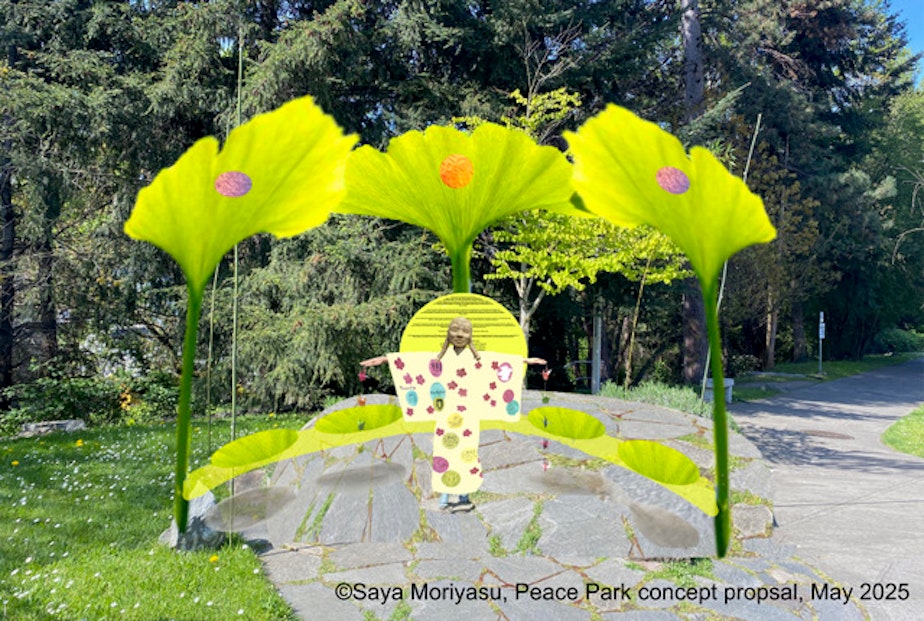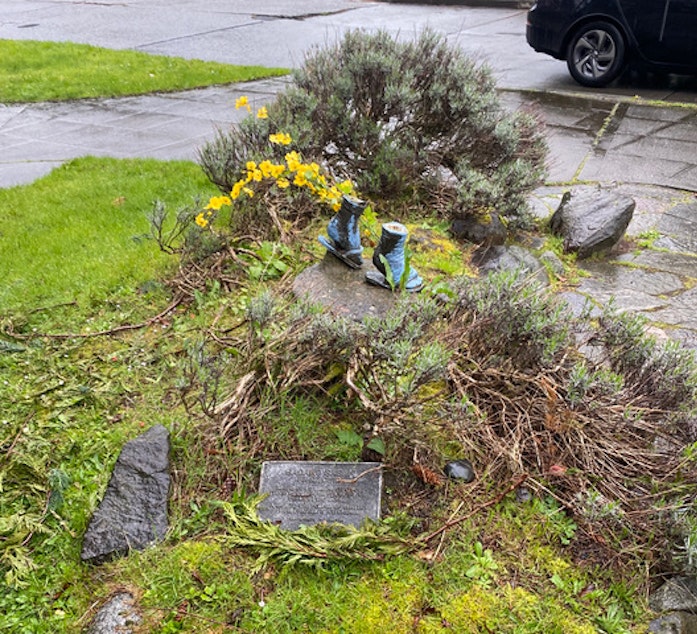Beacon Hill artist chosen to design new sculpture for Seattle's Peace Park

The original bronze statue of Sadako Sasaki honored a 12-year-old Japanese girl who survived the bombing of Hiroshima, and later died of leukemia. Her story and the paper cranes she folded while in the hospital moved so many people worldwide that she became a symbol for peace. The statue stood in Peace Park since 1990, often decorated by colorful origami cranes.
But last July, thieves cut the statue down and stole it.
Her feet were all that was left.
RELATED: Where are all the monuments to women in Seattle?
“The feeling of grief was overwhelming,” said Stan Shikuma with the social justice organization Tsuru for Solidarity.
Sponsored
The theft prompted the group and other organizations to collaborate to replace the statue and restore the surrounding space. The selecting committee chose local artist Saya Moriyasu to create something new that will incorporate the previous statue's feet.
“It does bring us memories of what was there before, and then whatever is new we can combine the two into something that, hopefully, will be just as meaningful,” Shikuma said.
Moriyasu creates sculptures, paintings, and drawings. One of her most visible works is "Maya," an 11-foot sculpture on Yesler and Broadway.
For the Peace Park project, Moriyasu said she envisions a sculpture of Sadako in a kimono, her arms outstretched like a crane.
“The feeling of wings is prominent in putting on a kimono, because they have all that fabric, and so it’s kind of like she’s free and not in physical pain,” Moriyasu said. “She’s the Sadako that never got sick.”
Sponsored

Moriyasu said the space is about more than Sadako’s story. It will feature the stories of Floyd Schmoe, the pacifist who helped create Peace Park, and the story of Cheshiahud, a Duwamish chief who helped guide early white settlers in the region. A trail loop bearing his name goes by the Peace Park.
RELATED: The merits of meandering: Art adventures in the Chinatown-International District
“Mostly, what I want people to come away with is what is peace,” Moriyasu said. “Peace is that a child can have a childhood no matter where you’re from.”
The goal is to have the sculpture completed by August 2026 to commemorate the anniversary of the Hiroshima atomic bombing.




